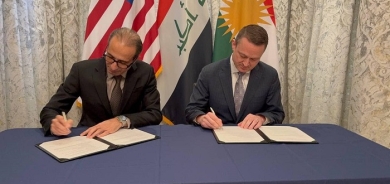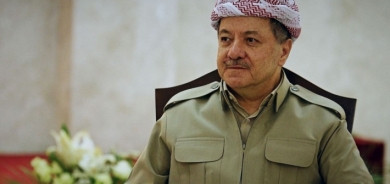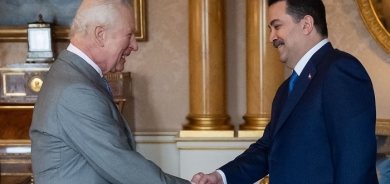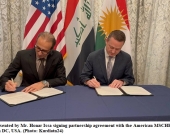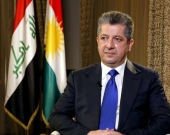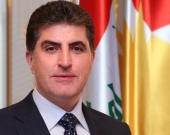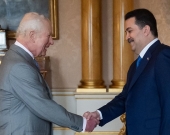London angry as details about knife attackers emerge

The two suspects — one of whom was identified by media as 28-year-old British-born Michael Adebolajo — remain under guard in two separate hospitals after they were shot by police.
The authorities identified the victim as Drummer Lee Rigby, 25, of Manchester.
Eyewitnesses yesterday said two men slammed into Rigby on the street with their car, then brutally attacked him with knives before dragging him into the street and asking onlookers to take their photo.
“We must fight them as they fight us. An eye for an eye and a tooth for a tooth,” said a man identified as Adebolajo in a video taken by a passer-by after the attack. “You people will never be safe.”
In the short film, taken as the attackers waited for the police, he is seen clutching what looks like a butcher knife and a cleaver.
"The people who did this were trying to divide us,” Prime Minister David Cameron said during a news conference at 10 Downing Street. “They should know something like this will only bring us together, make us stronger.”
Revealing the victim's identy, defense officials described him as a likeable military man.
"An extremely popular and witty soldier, Drummer Rigby was a larger-than-life personality within the Corps of Drums and was well known, liked and respected across the Second Fusiliers," the Ministry of Defence said in a statement.
Rigby leaves behind a 2-year-old son.
The attack took place in Woolwich, a multiethnic, working-class neighborhood in southeast London. News reports recounted heroic instances of people confronting the attackers as they stood waiting for police to arrive.
John Wilson Street, the busy thoroughfare where stunned onlookers witnessed the murder, was silent and empty Thursday morning. Police cordoned off an area of several hundred yards surrounding the site where a man confirmed to be an active-duty British soldier died Wednesday afternoon.
Locals in Muslim headscarves and Sikh turbans walked past crowds of onlookers, police and international media gathered near the police tape strung across Wellington Street.
People approached the barricade with bouquets of flowers throughout the bone-chattering cold spring morning. Police officers in high-visibility jackets carried them in bunches to the crime scene.
Local resident Stefan Kemp, 24, was among those paying tribute.
"He was a member of the military and we should have the utmost respect for what they do," he said.
Kemp’s partner witnessed the attack unfold yesterday, he added. He saw the car on the sidewalk and two men standing over the victim.
"He thought it was a car accident,” said Kemp, who was visibly upset. “As he walked up, he could see these people were attacking him."
The attack left Kemp feeling frightened in his neighborhood.
"The scary thing is, it could have been anyone,” he said. “My job takes me out in the community, and I'm afraid to go out."
When London Mayor Boris Johnson visited the crime scene shortly before noon, about six men in the crowd, including a group of three youths, began to shout at him.
Police closed in around a surprised-looking Johnson as he walked to nearby Woolwich Centre for a meeting with local leaders.
Other officers approached the screaming young men. One put his arm around one of the youths and pulled him aside to talk him down in private. The tactic worked, and the young men calmed down.
"What's this world coming to?" said one of the protesters, a young man in a hoodie who gave his name as Rusty Nayler, 21. "This Boris Johnson guy wants to come here today, and it took police 20 minutes" to arrive at the scene of the murder.
Woolwich was also crawling with reporters from around the world: Turkey, India, Hong Kong, Canada, Austria.
"I think it's a bit over the top, to be honest,” said Rob Thornborrow, a Royal Mail postal carrier whose normal route was disrupted by the police cordon. “This type of media attention stirs up fear. It's a bit of a circus, if you ask me."
On Wednesday night, about 250 protesters from the English Defence League — a right-wing, anti-Islam protest group — gathered in front of Woolwich Arsenal train station to hurl abuse and projectiles at police.
Thornborrow said the event garnered far more media attention than any of the area’s persistent social problems.
"Woolwich is a rough town. There's gang violence that goes on regularly and it's swept under the rug,” he said.
Insensitive coverage of the incident could exacerbate tensions and lead to further violence, he added.
"Most Muslims are all right. They're cool people, like you and me,” he said. “But each side's tarring everyone with the same brush. It's all sort of ‘us’ and ‘them.’ This media coverage doesn't help the situation."
As the meeting between Johnson and community leaders took place inside the civic center, a crowd gathered in the street outside. Police formed a line across the street.
One man began to loudly berate police officers over the reported time it took yesterday for officers to arrive on scene.
"Twenty minutes, to walk a quarter of a mile?" a man shouted.
Numerous bystanders on Wednesday had reported that police took 20 minutes to arrive on the scene after receiving an emergency call.
However, Scotland Yard officials insisted Thursday that officers arrived only nine minutes after the first 999 call.
Nearby, Gerard Meade, 58, held a bouquet of roses next to his wife and 13-year-old son.
He said he was distressed to see the killers were men of his own race. More important, he added, was expressing his sympathies to the murdered soldier’s family. His nephew Donal Meade was killed while serving in Iraq in 2005, he said.
"It's something you never get over.” Wednesday’s attack “brings back everything to me."
He said the attack’s brutality appalled him.
"Horrific. Barbaric. You don't treat an animal like that, much less a human being."
GlobalPost


